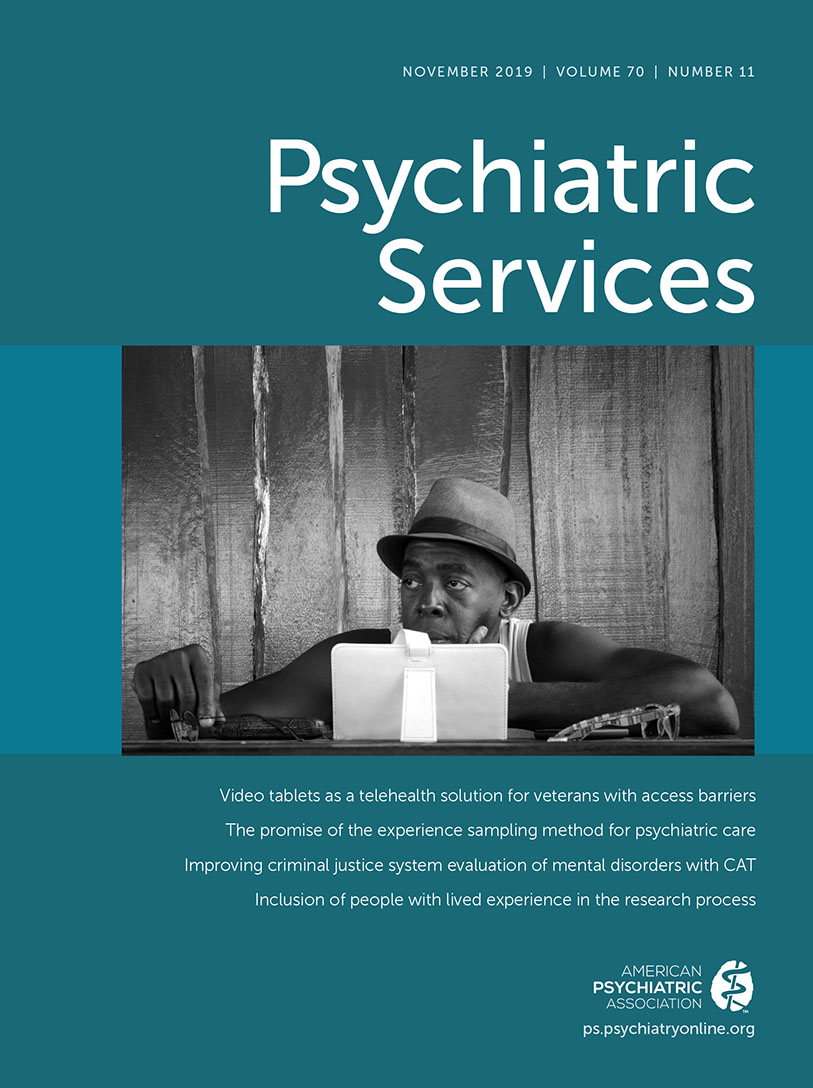Implementation of MISSION–Criminal Justice in a Treatment Court: Preliminary Outcomes Among Individuals With Co-occurring Disorders
Abstract
Objective:
Mental health courts provide an alternative to incarceration and address both mental health and criminal justice needs. Many individuals within these treatment courts also have co-occurring substance use disorders. This pilot study examined the preliminary effectiveness of Maintaining Independence and Sobriety through Systems Integration, Outreach, and Networking–Criminal Justice (MISSION-CJ), an intervention that targets co-occurring disorders and criminal justice risk factors within a mental health court.
Methods:
Participants (N=97) were enrolled in mental health court and MISSION-CJ community wraparound services.
Results:
Participants were primarily male with an average age of 34, had spent an average of more than 5 years incarcerated, and had an average of 13.94 years of illegal drug use; 91% had experienced depression. Preliminary 6-month outcomes showed significant reduction in nights incarcerated (p<0.002), illegal drug use (p<0.003), trauma symptoms (p<0.004), and behavioral health symptoms (p<0.006).
Conclusions:
Preliminary findings suggest promise for delivery of MISSION-CJ to participants in a mental health court.




